Introduction
In the realm of reproductive health, the term “fertility revolution” is gaining prominence, signifying a transformative era in which scientific advancements are reshaping the landscape for future parents. The importance of understanding these breakthroughs cannot be overstated, as they hold the promise of overcoming fertility challenges and making parenthood more accessible. In this comprehensive guide, we delve into the cutting-edge breakthroughs that constitute the fertility revolution, providing valuable insights for those eager to embrace the wonders of modern reproductive technologies.
Table of Contents
Evolution of Fertility Science
Historical Perspective
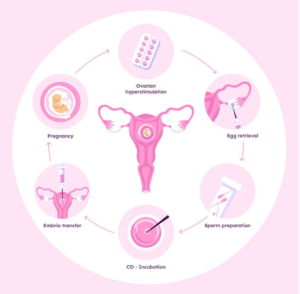
The journey of fertility science dates back through the annals of history, marked by significant milestones. From the first successful IVF in the late 20th century to pioneering developments in reproductive endocrinology, the evolution of fertility science is a testament to human perseverance and innovation.
Breakthroughs in Assisted Reproductive Technologies
Recent decades have witnessed remarkable breakthroughs in assisted reproductive technologies (ART), offering new hope to those struggling with infertility. Innovations like intracytoplasmic sperm injection (ICSI) and egg freezing have expanded the possibilities for prospective parents.
Cutting-Edge Techniques
In Vitro Fertilization (IVF): A Game-Changer
IVF has been a beacon of hope for many couples struggling with infertility. This process involves fertilizing an egg with sperm outside the body and implanting the fertilized egg into the uterus. The latest refinements in IVF techniques have increased success rates, offering renewed optimism for those seeking alternative paths to conception.
Preimplantation Genetic Testing (PGT)
The integration of PGT into fertility treatments allows for the screening of genetic abnormalities before implantation, ensuring a higher likelihood of a healthy pregnancy. This groundbreaking technique empowers future parents with valuable insights into their embryo’s genetic health.
Gamete Intrafallopian Transfer (GIFT)
GIFT represents a unique approach to fertility treatments, involving the transfer of both eggs and sperm into the fallopian tube. This technique, though less commonly used, offers a natural alternative for certain individuals seeking fertility solutions.
Egg Freezing: Empowering Choices
For individuals prioritizing career or personal goals before starting a family, egg freezing has emerged as a revolutionary option. This procedure allows women to preserve their fertility by freezing eggs for later use, providing flexibility and control over the timing of parenthood.
Navigating Male Infertility
It’s crucial to recognize that fertility challenges extend beyond women. Male infertility is a significant factor, and recent scientific breakthroughs have paved the way for innovative solutions.
Sperm Sorting: Enhancing Selectivity
Sperm sorting technologies enable the separation of sperm based on their genetic material, allowing for a more targeted approach to fertility treatments. This breakthrough not only enhances the chances of conception but also addresses underlying genetic issues.
Testicular Sperm Extraction (TESE): A Viable Option
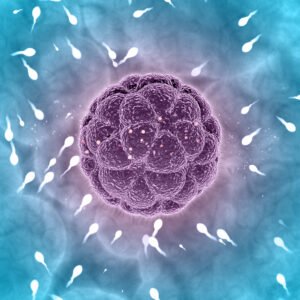
For men with obstructive azoospermia, a condition where sperm production is normal but obstructed, TESE offers a viable solution. This procedure involves extracting sperm directly from the testicles, bypassing obstructions and opening doors to parenthood.
Personalized Fertility Medicine
Role of Genetic Testing
Advancements in genetic testing have enabled a deeper understanding of individuals’ genetic makeup, influencing fertility treatments’ precision and effectiveness. Tailoring treatment plans based on genetic insights ensures a more personalized and targeted approach.
Tailored Treatment Plans
Gone are the days of one-size-fits-all fertility treatments. Personalized medicine allows fertility specialists to design individualized treatment plans, taking into account each person’s unique biological and genetic factors.
Importance of Individualized Care
Recognizing the significance of individualized care, fertility clinics are adopting holistic approaches that prioritize not just reproductive health but overall well-being. This shift in focus reflects a more comprehensive understanding of the complexities surrounding fertility.
Technological Innovations
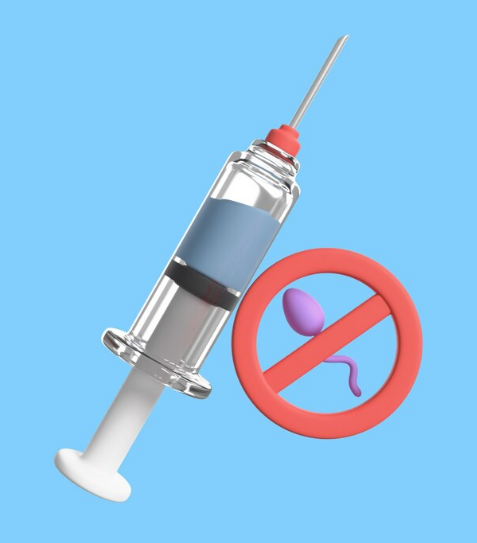
Artificial Intelligence in Fertility
The integration of artificial intelligence (AI) into fertility science has revolutionized data analysis and treatment optimization. AI algorithms can predict optimal embryo selection, contributing to higher success rates and more efficient fertility treatments.
Robotics in Fertility Procedures
Robotic-assisted reproductive technologies are becoming more prevalent, offering enhanced precision and control during delicate procedures. These innovations are reshaping the landscape of fertility treatments, providing both practitioners and patients with advanced options.
Challenges and Ethical Considerations
Ethical Concerns in Fertility Science
While the advancements in fertility science are undoubtedly groundbreaking, they bring forth ethical considerations. Questions about the moral implications of genetic manipulation and the commodification of reproductive services underscore the need for ongoing dialogue and ethical guidelines.
Balancing Technological Advancements with Ethical Standards
Striking a balance between pushing the boundaries of technological innovation and adhering to ethical standards is a delicate task. The fertility revolution demands thoughtful consideration of the potential risks and ethical implications associated with emerging technologies.
The Psychological Impact
Emotional Challenges of Fertility Treatments
Embarking on fertility treatments can be emotionally taxing. Future parents often face a rollercoaster of emotions, including hope, disappointment, and anxiety. Acknowledging and addressing the psychological impact of fertility treatments is an integral aspect of holistic care.
Support Systems for Future Parents
Establishing robust support systems for individuals undergoing fertility treatments is crucial. Counseling services, support groups, and educational resources can help future parents navigate the emotional challenges associated with the fertility journey.
Impact of Lifestyle Choices on Fertility
While advancements in medical science play a pivotal role, lifestyle choices also significantly impact fertility. Factors such as nutrition, exercise, and stress management play a role in reproductive health, emphasizing the importance of a holistic approach.
Holistic Approaches to Fertility
Nutritional Guidance: Fertility-Boosting Diets
Understanding the crucial role nutrition plays in fertility, incorporating a fertility-boosting diet can positively impact reproductive health. Key nutrients like folate, zinc, and omega-3 fatty acids contribute to optimal fertility, emphasizing the importance of a well-balanced diet for future parents.
Mind-Body Connection: Stress Management
Acknowledging the mind-body connection in fertility, stress management is gaining prominence in reproductive health. Techniques such as yoga, meditation, and mindfulness can help reduce stress levels, fostering a conducive environment for conception.
Future Trends in Fertility Science
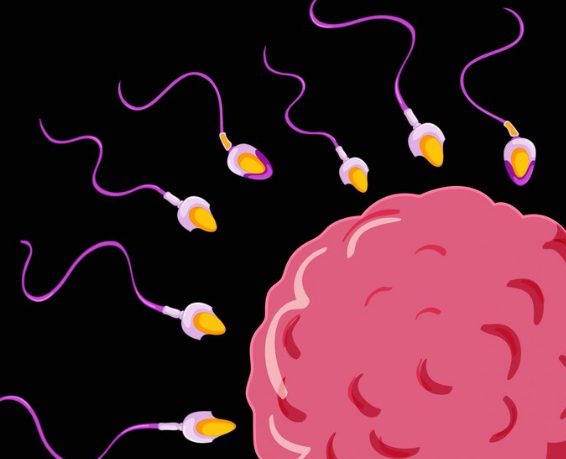
Ongoing Research and Developments
The field of fertility science is dynamic, with ongoing research and developments continually expanding our understanding. From regenerative medicine to gene editing technologies, the future holds exciting possibilities for addressing infertility and enhancing reproductive outcomes.
Potential Breakthroughs on the Horizon
Exploring the potential breakthroughs on the horizon, it becomes evident that the fertility revolution is far from reaching its zenith. Innovations in reproductive science, including advancements in artificial wombs and gene therapies, offer hope for overcoming even the most complex fertility challenges.
Conclusion
In conclusion, the fertility revolution represents a paradigm shift in reproductive health, offering unprecedented opportunities for future parents. The amalgamation of cutting-edge techniques, personalized medicine, technological innovations, and ethical considerations defines this transformative era. As we look ahead, it’s clear that the future of fertility science holds immense promise for those on the journey to parenthood.

10 Proven Benefits of Bananas for Health and Well-being
Bananas are known for their natural sweetness, ease of peeling and rich nutrition. This makes them one of the most commonly consumed fruits in the world. Though bananas originated in
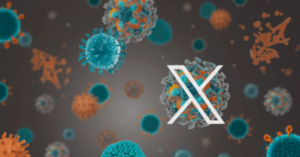
Disease X: The Next Pandemic?
Emerging infectious diseases pose one of the greatest threats to human health and global stability. One of them, “Disease X” has intrigued scientists and WHO, as it represents the potential

The Remarkable Benefits of Eating Acorn Squash in Winter
Acorn squash has all the qualities that make it special. Winter calls for warmth, comfort, and nutrition, and acorn squash provides all of these. This vegetable is not just delicious

Omega-3 Fatty Acids
Omega-3 fatty acids play a very important role in the nutrients needed to maintain overall health. As people are getting to know about it, its popularity is increasing day-by-day. These
Frequently Asked Questions (FAQ’s)
Artificial intelligence has revolutionized fertility treatments by optimizing data analysis, predicting optimal embryo selection, and contributing to higher success rates.
The ethical considerations include concerns about genetic manipulation, the commodification of reproductive services, and the need for balancing technological advancements with ethical standards.
Lifestyle choices, including nutrition, exercise, and stress management, significantly impact fertility, emphasizing the importance of a holistic approach to reproductive health.
Embarking on fertility treatments can be emotionally taxing, with individuals experiencing a range of emotions, including hope, disappointment, and anxiety.
Support systems for future parents include counseling services, support groups, and educational resources to help navigate the emotional challenges associated with the fertility journey.